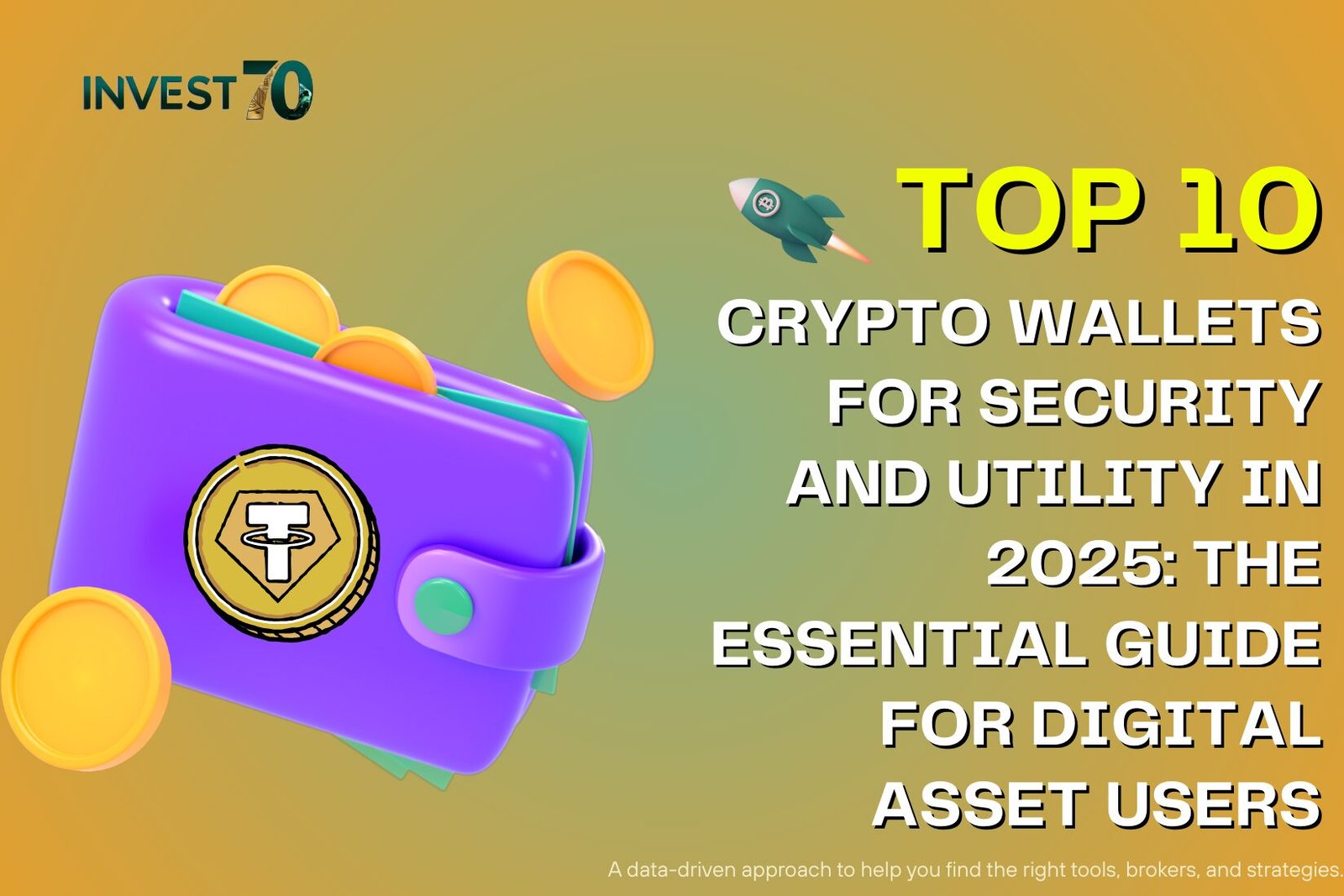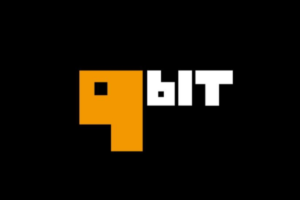Top 10 Crypto Wallets for Security and Utility in 2025: The Essential Guide for Digital Asset Users
Top 10 Crypto Wallet : In the early days of cryptocurrency, wallets were simple: a string of private keys stored on a desktop computer. Fast forward to 2025, and wallets have become far more than storage—they are now multi-functional hubs connecting users to decentralized finance (DeFi), non-fungible tokens (NFTs), and multi-chain ecosystems. With digital assets moving closer to mainstream adoption, the tools we use to secure and interact with them have to evolve as well.
The Top 10 Crypto Wallets for 2025 are not just about protecting coins from hackers or device failures. They must also integrate seamlessly with Web3, provide cross-chain compatibility, and maintain usability across devices. For newcomers and professionals alike, wallets now play a dual role: as a shield for security and as a gateway for utility. In an era where institutional adoption is rising and regulatory scrutiny is intensifying, the right wallet could make the difference between safe participation and costly mistakes.
Key Factors in Choosing a Wallet
When evaluating crypto wallets, there are five dimensions worth considering:
- Security Features: Strong encryption, private key management, hardware support, biometric access, and multi-signature options.
- Utility & Accessibility: Support for multiple blockchains, staking opportunities, NFT management, and DeFi integration.
- User Experience: Simplicity of setup, responsive design, and compatibility across mobile, desktop, and web.
- Backup & Recovery: Availability of recovery phrases, cloud options, and seedless authentication systems.
- Regulatory & Custodial Considerations: Whether the wallet is custodial (third-party controlled) or non-custodial (user-controlled), and how that aligns with personal or institutional requirements.
With these in mind, here’s a closer look at the Top 10 Cryptocurrency Wallets for 2025.
1. Ledger Nano X – Still the Benchmark
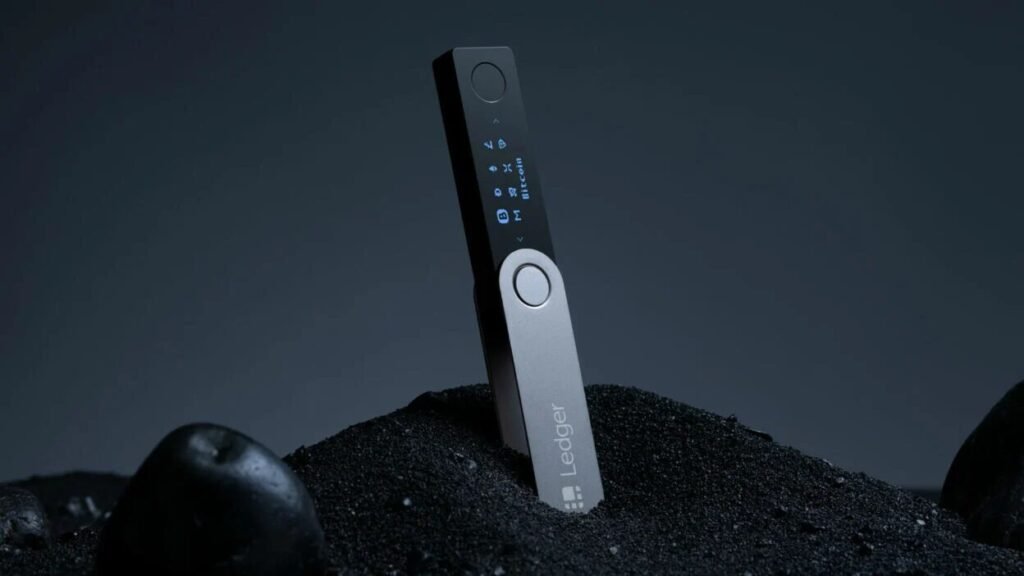
Source: CoinSutra
The Ledger Nano X continues to be the benchmark for secure crypto wallets. Designed as a hardware wallet, it keeps private keys stored offline, making it virtually immune to online attacks. In 2025, Ledger has refined its Bluetooth features, making it easier for users to connect on the go while still maintaining hardware-level security.
It supports a wide variety of tokens—from Bitcoin and Ethereum to Solana and emerging Layer-2 assets—making it versatile for long-term holders and active DeFi participants alike. For investors prioritizing safety above all else, Ledger remains a stronghold, even if it requires slightly more effort to manage compared to mobile-first wallets.
2. Trezor Model T – Open-Source Security

Source: Gray.inc
The Trezor Model T shines in transparency. Unlike closed systems, Trezor’s firmware is open-source, allowing the community to verify every line of code. This level of openness makes it one of the most trusted wallets on the market.
Beyond transparency, it offers advanced features such as PIN protection, passphrase support, and Shamir Backup for recovery. Its touchscreen interface is more intuitive compared to older hardware wallets, and compatibility with third-party apps makes it useful for traders who move across ecosystems. For users who value both transparency and strong protection, Trezor remains a natural choice.
3. MetaMask – Web3’s Everyday Tool

Source: Binance Academy
For anyone active in DeFi or NFTs, MetaMask has become nearly unavoidable. Originally an Ethereum-only browser extension, it has expanded significantly. By 2025, MetaMask now offers better multi-chain support, improved mobile apps, and additional safeguards like phishing detection.
What makes MetaMask powerful is its seamless integration with Web3 dApps. From swapping tokens to connecting with decentralized games and marketplaces, it functions as a passport to the broader crypto universe. While it carries the risks inherent to hot wallets, its utility is unmatched for users engaging daily with decentralized ecosystems.
4. Trust Wallet – Top 10 Crypto Wallet : Mobile-Friendly and Versatile
Trust Wallet, acquired by Binance, has carved out its place as one of the most non-custodial wallets with strong mobile accessibility. It supports thousands of assets, offers in-app staking, and provides a marketplace for NFTs, making it an all-in-one tool for mobile-first users.
In 2025, Trust Wallet’s updated interface and expanded cross-chain functions allow for easier swapping and portfolio management. For everyday traders or users experimenting across blockchains without wanting to juggle multiple wallets, Trust Wallet offers a clean balance of accessibility and control.
5. Coinbase Wallet – Bridging Centralized and Decentralized Worlds
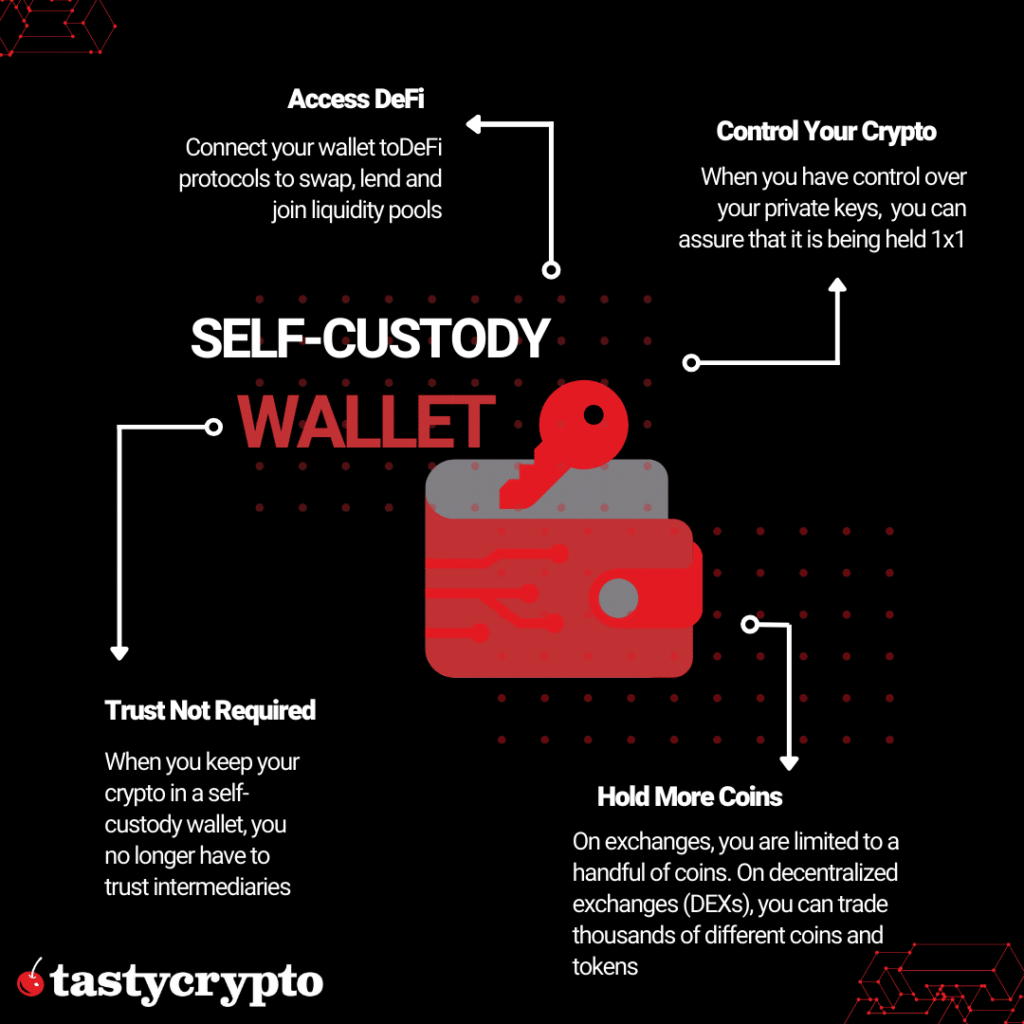
Source: Tastycrypto
Unlike the custodial accounts on Coinbase Exchange, the Coinbase Wallet gives users self-custody of their digital assets. For many newcomers, this wallet acts as a bridge: it carries the familiarity of a trusted exchange while offering the autonomy of a non-custodial system.
It supports a wide range of coins and tokens, offers recovery options for less experienced users, and connects directly to decentralized apps. For those transitioning from centralized finance into Web3, Coinbase Wallet offers a safer entry point while maintaining user-friendly design.
6. Exodus Wallet – Top 10 Crypto Wallet : Beautiful Design Meets Functionality

Source: Hedge with crypto
Where some wallets prioritize function over form, Exodus manages to combine both. With one of the most polished interfaces in the industry, it provides features like staking, swapping, and portfolio tracking in a layout that feels intuitive—even for beginners.
Exodus also integrates with Trezor, allowing users to pair their software experience with hardware security. This makes it particularly attractive for those who want a single wallet solution that evolves with their needs, from casual holding to more serious investing.
7. Atomic Wallet – Built for Decentralization
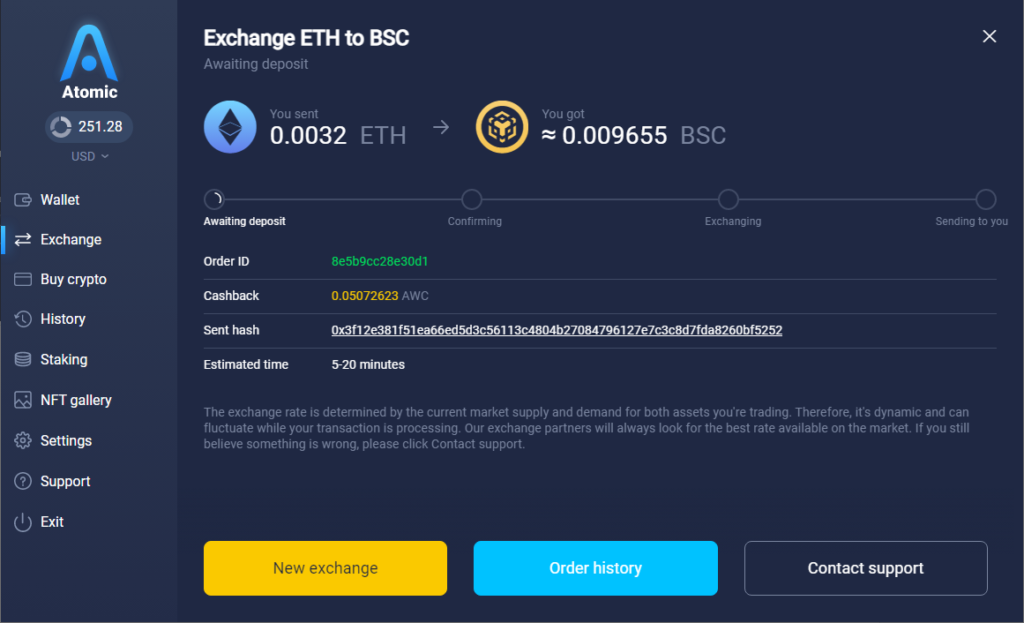
Source: Atomic wallet
The Atomic Wallet appeals to privacy-conscious users. It emphasizes decentralization, offering atomic swaps between supported coins, integrated staking, and no KYC requirements.
By 2025, Atomic has expanded its support for newer blockchains and refined its staking dashboard. For those who prioritize sovereignty and prefer to operate without third-party oversight, Atomic Wallet embodies the ethos of cryptocurrency itself.
8. SafePal – Top 10 Crypto Wallet : A Flexible Hybrid

Source: SafePal
SafePal distinguishes itself as both a hardware and software solution. With its affordable hardware wallet and feature-rich mobile app, it caters to a broad range of users. Backed by Binance Labs, SafePal has become a go-to choice for users who want security without spending too much.
Its DeFi integration and NFT support are strong selling points, allowing users to engage in multiple activities from one ecosystem. For budget-conscious users looking for a hybrid that doesn’t compromise too much on either end, SafePal fits well.
9. Ellipal Titan – Security First, Always

Source: Coin Telegraph
The Ellipal Titan is one of the most unique wallets on this list because of its air-gapped design. It never connects to Wi-Fi, Bluetooth, or USB, reducing its attack surface dramatically. Transactions are managed via QR codes, providing an extra layer of physical isolation.
The Titan’s heavy metal casing emphasizes durability and tamper resistance. While it may not offer the convenience of always-connected wallets, it is ideal for those holding significant sums who want maximum protection.
10. Zengo – Keyless Innovation
Last but not least, Zengo reimagines what a wallet can be. Instead of relying on traditional seed phrases, Zengo uses biometric authentication and multi-party computation (MPC) to secure accounts. This keyless model lowers the risk of losing assets due to a misplaced recovery phrase.
Its mobile-first design makes it approachable for new users, while its cutting-edge cryptography hints at where the future of wallets is heading. Though relatively new compared to hardware veterans, Zengo deserves its place for pioneering innovation.
Comparison Table: Top 10 Crypto Wallet- Security vs Utility
| Wallet | Type | Security Strength | Utility Level | Best For |
|---|---|---|---|---|
| Ledger Nano X | Hardware | Very High | Moderate | Long-term storage, high-value investors |
| Trezor Model T | Hardware | Very High | High | Transparency-focused, multi-chain users |
| MetaMask | Software | Moderate | Very High | DeFi and NFT traders |
| Trust Wallet | Mobile App | High | High | Everyday users across multiple blockchains |
| Coinbase Wallet | Hybrid | High | High | Beginners moving from centralized exchanges |
| Exodus | Desktop/Mob | High | High | Beginners who want style + utility |
| Atomic Wallet | Software | High | High | Privacy-conscious, decentralization advocates |
| SafePal | Hybrid | High | High | Users seeking affordable security |
| Ellipal Titan | Hardware | Very High | Moderate | Cold storage, institutional-level protection |
| Zengo | Software | High | High | Biometric, seedless, user-friendly innovation |
Conclusion
The Top 10 Crypto Wallets for 2025 demonstrate how far wallet technology has evolved. Hardware wallets like Ledger, Trezor, and Ellipal remain unmatched for maximum safety, while software and mobile-first wallets like MetaMask, Trust Wallet, and Zengo push the boundaries of usability and innovation. Hybrids such as SafePal and Coinbase Wallet highlight the effort to strike a balance for everyday users.
Ultimately, the “best” wallet comes down to personal needs: a long-term investor may lean toward hardware, while a DeFi trader may prefer the agility of mobile or browser-based solutions. What unites them all is the need for strong habits—staying updated, securing recovery options, and understanding risks. In 2025, wallets aren’t just tools for holding coins; they are entry points into the expanding digital economy.

